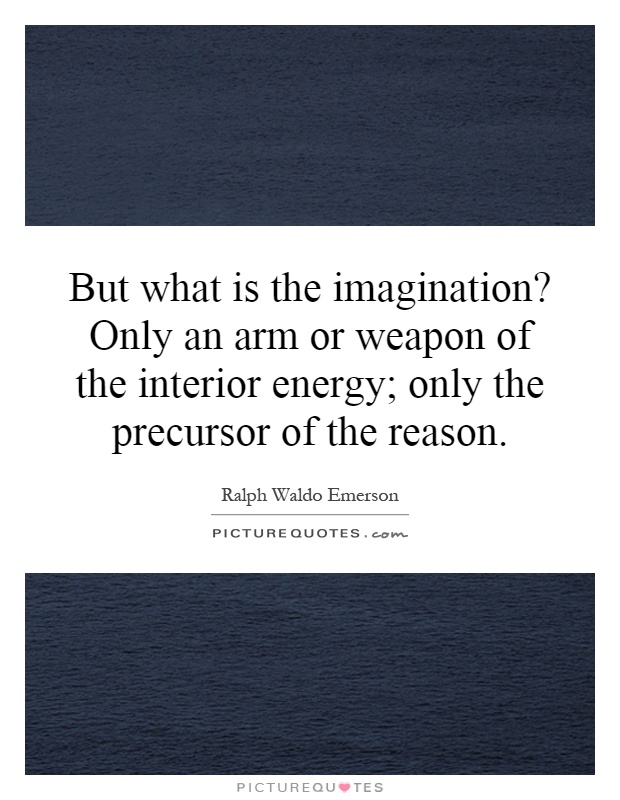But what is the imagination? Only an arm or weapon of the interior energy; only the precursor of the reason

But what is the imagination? Only an arm or weapon of the interior energy; only the precursor of the reason
Ralph Waldo Emerson, a prominent American essayist, poet, and philosopher, was a firm believer in the power of the imagination. In his works, Emerson often explored the concept of imagination as a vital force that drives human creativity and innovation. One of his famous quotes, "But what is the imagination? Only an arm or weapon of the interior energy; only the precursor of the reason," encapsulates his views on the subject.Emerson believed that the imagination was not just a fanciful or frivolous faculty of the mind, but rather a powerful tool that could be harnessed to unlock new possibilities and insights. He saw the imagination as a force that could propel individuals to think beyond the confines of conventional wisdom and explore new ideas and perspectives. In this sense, the imagination was not just a flight of fancy, but a precursor to reason and rational thought.
For Emerson, the imagination was intimately connected to what he called "interior energy," the inner drive and passion that motivates individuals to pursue their goals and dreams. He believed that the imagination was a key component of this energy, serving as a catalyst for creative thinking and problem-solving. By tapping into the power of the imagination, individuals could access a deeper well of inspiration and intuition that could guide them towards new discoveries and innovations.
Emerson's views on the imagination were deeply rooted in his transcendentalist philosophy, which emphasized the importance of individual intuition and self-reliance. He believed that by cultivating the imagination and trusting in its creative potential, individuals could break free from the constraints of societal norms and expectations and forge their own path towards self-realization and fulfillment.












 Friendship Quotes
Friendship Quotes Love Quotes
Love Quotes Life Quotes
Life Quotes Funny Quotes
Funny Quotes Motivational Quotes
Motivational Quotes Inspirational Quotes
Inspirational Quotes